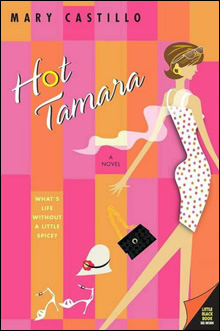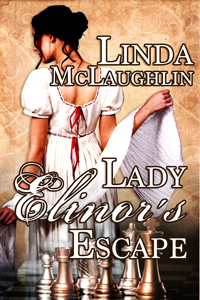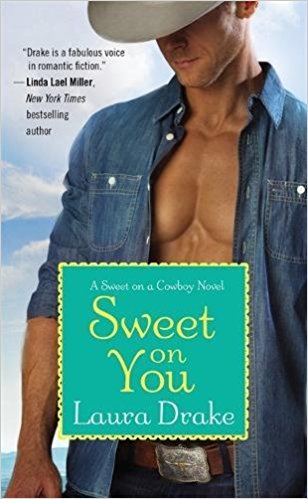Choosing a Focus Word for Next Year
December 12, 2022 by Denise M. Colby in category The Writing Journey by Denise Colby tagged as Denise M. Colby, Word of the yearI’ve written several posts about choosing a focus word each year and work hard (my word is WORK after all, this year) to find ways to study it, learn about it and share throughout the year. Over the past few years, I’ve had my word scream at me by the end of October. This year, it’s a little more subtle and I’m not sure what to choose. Have you picked your word yet?

How do you start to choose a focus word?
My word of the year journey began in 2015, when I decided to choose a focus word that I could cling to in my writing. I quickly realized that my word applied to all areas of my life, not just writing. And I have found it to be something I love to incorporate in my social media and discussions with people throughout the year.



You can introduce your word of the year in social media, take pics when you find your word, and share quotes and verses which include your focus word.
About a year ago I figured out each word builds on the previous word and a true indicator of my overall writing journey. Now I just have to figure out what my 2023 word will be.
Here are the words I’ve selected since I’ve started.
- 2015: Hope
- 2016: Believe
- 2017: Strength
- 2018: Steadfast
- 2019: Purposeful
- 2020: Courage
- 2021: Wisdom
- 2022: Work
- 2023: ???????

I have a short list for next year already, I just want to look up verses and see if there’s enough quotes to support and encourage me throughout an entire year.
Do you have a process you use to select your word? Or if you haven’t ever chosen a word, I wrote this blog post on the Wisdom of Selecting a New Focus Word Every Year
If you’ve already chosen a word, I’d love to hear what it is and why you chose it. Please write in the comments so those of us who have not picked a word yet, can find some inspiration!
In the meantime, I wish you and your families a very Merry Christmas.
Blessings,
Denise
1 0 Read moreMy Work In Progress, Applying My 2022 Focus Word
November 12, 2022 by Denise M. Colby in category The Writing Journey by Denise Colby tagged as Denise M. Colby, Word of the year, workI love the play on words with the term Work in Progress for my 2022 focus word. With my word being “work” this year, I, myself am a work in progress. Just like what us authors call our current manuscript, work in progress (WIP).
I have found this word to be a great word to focus on. The word work can mean many different things, and I have focused on the noun.
Exertion or effort directed to produce or accomplish something; productive or operative activity
My favorites have been the synonyms for the word work. These highlight what I wanted to focus on this year.

Interestingly, for my manuscript work in progress, I have been able to focus on digging deeper into editing, reviewing each chapter with my critique partners and learning through editing their work as well. I also have entered additional contests and participated in classes and online learning. With the limited time I’ve had, I feel I have continued work on my manuscript and have made progress.
My Personal Work In Progress
Personally, I am always a work in progress, but especially this year my focus has been on my health. Even with a significant car accident earlier in the year that put me in physical therapy for many months, I have made great strides in my health. I’m sleeping better, I have more energy, and I can eat a larger variety of foods again.
It has taken a daily commitment to build new habits in both of these work in progress areas. Sometimes it’s been challenging. Sometimes I wonder if I would ever get better (both in my writing and my health). But as days have become weeks, and weeks, months, I do see progress. The best complement I received recently from a dear friend; they could see how much healthier I look. And as I reflected on those words, I realized I do feel healthier and happier.
Creating Fun with my word, Work
I like to make my word each year fun and memorable and find all sorts of quotes and verses with that word in it. The last few years, I get to the end of the year and I haven’t posted as much as I wanted to about my word. That too, seems to be a work in progress. And then it becomes a mad dash to do just that. So bear with me as I share these quotes and verses related to my word work.





I hope they inspire you in your own work in progess, whether it is your writings or your personal life.
Denise M. Colby loves to write words of encouragement blog posts. She also loves to write about her word of the year she chooses each year. She created a page on her website on her 2020 word, courage, a blog post about her 2021 word, wisdom. She started 2022 sharing why she chose the word, work
0 2 Read moreThe Brand Challenge Introduction
October 12, 2022 by Denise M. Colby in category The Writing Journey by Denise Colby tagged as Author Brand, Denise M. Colby, Marketing for Authors, The Brand ChallengeThis month, I’m introducing a concept called The Brand Challenge. It’s a way to encourage you to try something new on your website to help you build your brand.

Sometimes branding and dealing with your website can be challenging. The purpose of this challenge is to encourage you to just try. It doesn’t have to be perfect. It can even be something you decide to change later on. The idea is trying something new to keep propelling you forward in your Author career.
For a list to choose from, here are some ideas to help you with your Brand Challenge this month:
- Create a new blog post this month about a character, your story theme, or genre you write in
- Up your on-page SEO with each post and page (for help, I’ve created an On-Page SEO Checklist for you to download, and check out my past blog post Using a Blog SEO Checklist to Streamline Your Blog Post)
- Create a book page on your website for every book you have or are working on
- Link two or three pages on your website to one another using Anchor Text
- Design a social media post about the genre you are writing in, or a book you’ve read recently
Pick One Task A Month For This Brand Challenge
Again, I encourage you to do one thing on this list above to help build your brand. It may not seem much, or it may feel overwhelming. But just stick to one thing only for the entire month. Then do another thing the following month. Pretty soon, you’ll have many months of blog posts or content you didn’t have before.
I’m always amazed at how slow and steady can be the right way to approach brand building.
Sometimes we feel this urgency to hurry up that adds extra stress we don’t need as we are busy writing our next book.
I’d love to hear other ideas that can help you build your brand. Do you like the idea of a monthly Brand Challenge? Leave your thoughts in the comments below.
Blessings,
Denise
0 0 Read moreConsistently Write In Order to Meet Your Writing Goals
September 12, 2022 by Denise M. Colby in category The Writing Journey by Denise Colby tagged as Denise M. Colby, encouragement, writing processEach week my progress feels limited, but add the work all up together (it’s the 37th Monday of the year) and I’m finding that consistently writing a small amount week to week is working for me. It’s fun to check in mid-year, or in this case, September, and take a peek at the goals I set for the year. Am I even close? Did I miss my mark this year? Should I give up writing?

And learn I HAVE made progress.
It’s just so hard to see when we are going word by word, page by page.
Be Encouraged to Keep Writing Consistently
I want to encourage my writing friends to not give up. Set realistic goals for yourself on a week to week basis and keep plugging along. Stay steady. Be persistent.
Have I reached all my goals? No. But the year isn’t done yet. And yes, I have some far-reaching goals that can overwhelm me if I try to hurry up and get them done all at once. But this is where breaking tasks into manageable chunks help.
Put in the work (my word for the year) and you will see results. If you are like me, figuring out what that work should be in each stage of the process can be challenging. I’m not able to focus on my writing full-time at this stage in my life, so my writing consistently has to be squeezed in between my day job and the family commitments.
How do I do that?
Find The Schedule to Help You Consistently Write
At first I selected a specific day and time, one day a week. But that fell through when other required events popped up. Then I tried to just touch my ms sometime during the week. Constantly touching your MS even if it’s one page at a time is better than no writing at all. But it was hit or miss how far I would get and there wasn’t any accountability to myself to keep going.
Then a door opened that was exactly what I needed (which is something that has happened a lot in my writing journey). A new critique group came along at the perfect time within one of my writing groups. Out of all the writing clubs I belong too, this was really where I needed to put in the time. But I was afraid of the commitment. Yet it’s the commitment to consistently write that helps us complete a book. So finding the way that works for you to do that is key.
So this critique group came along at the perfect time. Sure I wanted my MS completely edited and ready to pitch ASAP. But instead I’m focusing on a chapter a week, by relooking at the scenes, editing, submitting and getting great feedback. And learning how to provide feedback back to others. Which has helped in many ways as well.
Overall, this has helped me streamline my story and make it stronger. And I’ve become a better writer. The bonus with working on this one writing task consistently every week? By the end of the year, I’ll have gotten feedback on every chapter. This was the accountability I needed.
Choose Your Own Way to Be Consistent
I’m not writing this post to encourage you to join a critique group. Maybe a critique group isn’t for you at this stage. For each writer, what helps you consistently write can be different. So know yourself. And spend some time figuring out what you need to do at this stage in your writing. What you need can change. Allow it to change. There just needs to be forward momentum (which happens when we consistently write) in order for us to reach our goals.
It’s the consistently writing, however we approach it, that counts.
Denise M. Colby loves to write words of encouragement blog posts. She also loves to write about her word of the year she chooses each year. She’s been working on her first manuscript for a long time and hopes to publish soon, since she has lots of other stories in her head waiting to be put on the page.
0 1 Read moreWhat’s All The Hype Over Keywords?
August 12, 2022 by Denise M. Colby in category The Writing Journey by Denise Colby tagged as Keywords, Marketing for Authors, SEO MarketingWe’ve all heard these statements: Use keywords in your blog posts. Up your SEO game with the right keywords. Keywords are the key. Keywords matter. So what is all the hype over keywords?

Here’s a simple definition:
Keywords are used in digital marketing to describe a word or group of words someone types in a search engine/search bar to perform a search.
As writers we use that search bar all the time for our research.
And that’s how our readers use the search bar too.
So when we write a blog post – think what your reader would possibly type in their search bar to find what you are writing. And use your search bar to test the keywords you are selecting.
The hype over keywords is no joke
Have you ever searched for something and had to change the wording several times to finally get to what you were looking for? That’s the keyword organization going on. The search engines have specific formulas to organize and index everything on the internet. When someone performs a search, they want to find relevant content. And why businesses in the SEO and search engine business hype the use of keywords all the time. And teach what they can on the subject. The better everyone uses keywords, the more organized internet content will be.
How do you write keywords?
Keywords are tricky. You can’t use the same ones twice. If you do, they sort of cancel each other out when being indexed. So, when you use only one word, it limits using that word ever again. So using two words and varying one of them for different scenarios would be a good strategy.
Another strategy is to not use words too broad or too narrow. Again, think about the terms you use when searching for similar topics. You want to land on the first page of the search. The more you research, you’ll start to see how to tweak and tailor your keywords to better fit.
Other tips for writing strong keywords
- Make sure posts and pages are focused and related to only ONE main idea. When you figure out your keyword FIRST, you write your blog post differently.
- Include your keywords in your title, first paragraph, a subhead or two, and the body text
- Use other relatable words that support the main topic through the post/page
- Include pictures that represent your keywords and add your keywords into the alt text
- Keywords can be tied into your Category and Tag strategy as well, especially if it’s a topic you cover frequently
- You could use your keyword phrase as your slug to keep things simple
Interested in learning more about SEO? Check out my Using a Blog SEO Checklist to Streamline Your Blog Post and/or sign up for my Marketing for Authors newsletter on my website.
0 0 Read more
Affiliate Links
A Slice of Orange is an affiliate with some of the booksellers listed on this website, including Barnes & Nobel, Books A Million, iBooks, Kobo, and Smashwords. This means A Slice of Orange may earn a small advertising fee from sales made through the links used on this website. There are reminders of these affiliate links on the pages for individual books.
Search A Slice of Orange
Find a Column
Archives
Featured Books
GAME TOWN
Follow Skylar Drake to Hollywood parties where the forbidden is accepted and games played are for keeps.
More info →LADY ELINOR’S ESCAPE
Lady Elinor Ashworth always longed for adventure, but ...
More info →Newsletter
Contributing Authors
Search A Slice of Orange
Find a Column
Archives
Authors in the Bookstore
- A. E. Decker
- A. J. Scudiere
- A.J. Sidransky
- Abby Collette
- Alanna Lucus
- Albert Marrin
- Alice Duncan
- Alina K. Field
- Alison Green Myers
- Andi Lawrencovna
- Andrew C Raiford
- Angela Pryce
- Aviva Vaughn
- Barbara Ankrum
- Bethlehem Writers Group, LLC
- Carol L. Wright
- Celeste Barclay
- Christina Alexandra
- Christopher D. Ochs
- Claire Davon
- Claire Naden
- Courtnee Turner Hoyle
- Courtney Annicchiarico
- D. Lieber
- Daniel V. Meier Jr.
- Debra Dixon
- Debra H. Goldstein
- Debra Holland
- Dee Ann Palmer
- Denise M. Colby
- Diane Benefiel
- Diane Sismour
- Dianna Sinovic
- DT Krippene
- E.B. Dawson
- Emilie Dallaire
- Emily Brightwell
- Emily PW Murphy
- Fae Rowen
- Faith L. Justice
- Frances Amati
- Geralyn Corcillo
- Glynnis Campbell
- Greg Jolley
- H. O. Charles
- Jaclyn Roché
- Jacqueline Diamond
- Janet Lynn and Will Zeilinger
- Jaya Mehta
- Jeannine Atkins
- Jeff Baird
- Jenna Barwin
- Jenne Kern
- Jennifer D. Bokal
- Jennifer Lyon
- Jerome W. McFadden
- Jill Piscitello
- Jina Bacarr
- Jo A. Hiestand
- Jodi Bogert
- Jolina Petersheim
- Jonathan Maberry
- Joy Allyson
- Judy Duarte
- Justin Murphy
- Justine Davis
- Kat Martin
- Kidd Wadsworth
- Kitty Bucholtz
- Kristy Tate
- Larry Deibert
- Larry Hamilton
- Laura Drake
- Laurie Stevens
- Leslie Knowles
- Li-Ying Lundquist
- Linda Carroll-Bradd
- Linda Lappin
- Linda McLaughlin
- Linda O. Johnston
- Lisa Preston
- Lolo Paige
- Loran Holt
- Lynette M. Burrows
- Lyssa Kay Adams
- Madeline Ash
- Margarita Engle
- Marguerite Quantaine
- Marianne H. Donley
- Mary Castillo
- Maureen Klovers
- Megan Haskell
- Melanie Waterbury
- Melisa Rivero
- Melissa Chambers
- Melodie Winawer
- Meriam Wilhelm
- Mikel J. Wilson
- Mindy Neff
- Monica McCabe
- Nancy Brashear
- Neetu Malik
- Nikki Prince
- Once Upon Anthologies
- Paula Gail Benson
- Penny Reid
- Peter J Barbour
- Priscilla Oliveras
- R. H. Kohno
- Rachel Hailey
- Ralph Hieb
- Ramcy Diek
- Ransom Stephens
- Rebecca Forster
- Renae Wrich
- Roxy Matthews
- Ryder Hunte Clancy
- Sally Paradysz
- Sheila Colón-Bagley
- Simone de Muñoz
- Sophie Barnes
- Susan Kaye Quinn
- Susan Lynn Meyer
- Susan Squires
- T. D. Fox
- Tara C. Allred
- Tara Lain
- Tari Lynn Jewett
- Terri Osburn
- Tracy Reed
- Vera Jane Cook
- Vicki Crum
- Writing Something Romantic
Affiliate Links
A Slice of Orange is an affiliate with some of the booksellers listed on this website, including Barnes & Nobel, Books A Million, iBooks, Kobo, and Smashwords. This means A Slice of Orange may earn a small advertising fee from sales made through the links used on this website. There are reminders of these affiliate links on the pages for individual books.










































